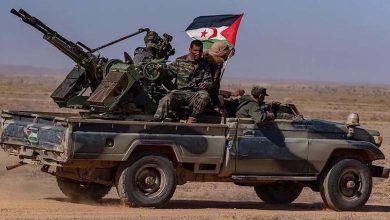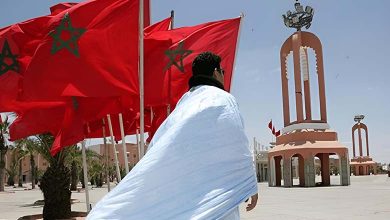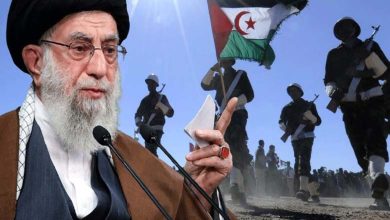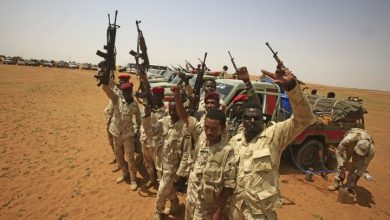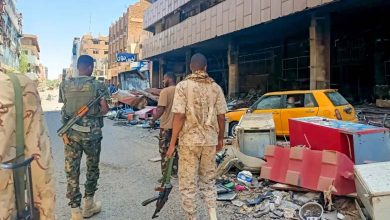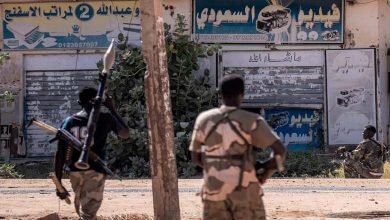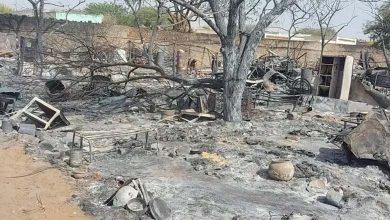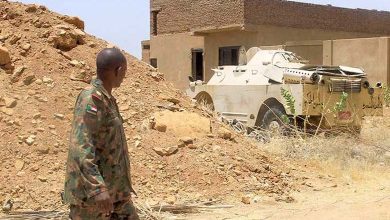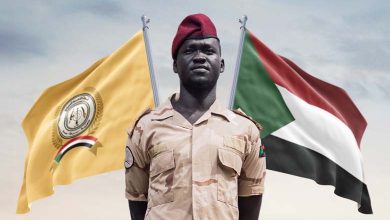Who are those that the youth of the Muslim Brotherhood organization taking sides with?
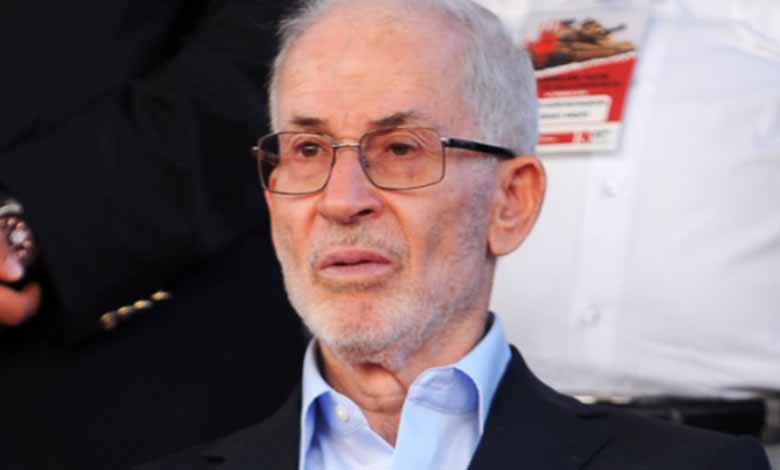
A state of conflict erupted between the leaders of the Muslim Brotherhood to hold onto positions, amid intensive efforts to gather the diaspora of the terrorist organization after successive painful blows internally and externally by co-opting youth bases.
One of them abandoned them after they demanded an initiative to renounce violence and reconcile with the authorities in Egypt in an attempt to release those imprisoned in the country, and the other accused of corruption, nepotism and the looting of funds.
The terrorist organization has been in a state of flux since the Acting Supreme Guide, Ibrahim Munir, officially announced the decision to dissolve the Administrative Bureau for Organizational Affairs in Turkey under the leadership of former Secretary-General Mahmoud Hussein, as well as the Shura Council of Qatar, last June. He also announced the postponement of the internal elections, which were to be held within weeks to choose members of the General Shura Council, for a period of six months.
With the conflict raging and the terrorist group’s demise drawing near as a result of self-destruction and international pressure with laws that renounce the organization’s violence and criminalization, questions are being raised about the position of the youth in the battle for leadership and decision-making by either side, or they will have a third opinion about dissolving the organization and ending their suffering.
Confidence-building decisions
Attempts to polarize the two sides have become apparent. On Friday, Mahmoud Hussein’s front group republished an article entitled “Analytical stand with a message to the youth” on the Facebook page of the Ikhwan Online website, run by the so-called “Istanbul Group”.
The article is one of the messages of the founder of the terrorist organization, Hassan al-Benna, to Muslim Brotherhood youth, in which he emphasizes the importance and role of youth in “the renaissance of the nation and Islamic action,” in an explicit attempt to influence youth to align with the Istanbul Front.
On the same day, Ibrahim Munir appeared in a televised interview, praising the terror group’s youth and calling on them to “reunite”.
Munir claimed that the past years have produced “a new generation with great awareness that contributes to the maturity of the group.”
To remove the great congestion of many young leaders, Munir flirted with Egypt’s political leadership, saying: “We will not work under the table if there is an initiative that could ease or release prisoners, we will announce it.”
Not only that, Munir appointed a youth named Suhaib Abdul Maqsoud as the group’s media spokesman, in a move to win over the Brotherhood’s youth.
Dishonorable past
However, the struggle against the “Young Brothers” between Munir and Hussein clashes with the various positions of the youth against the acting leader and former secretary-general due to an dishonorable past of statements, decisions, and even financial disgrace.
The leaders of the London and Istanbul offices do not have a broad platform among the Brotherhood’s youth, as the former issued statements saying that “the group did not ask anyone to join it and that it was not the one who put them in prison.” This refusal was in response to the young people’s demands from their leaders to ask for reconciliation with the Egyptian state. This refusal from Munir led to a state of anger among the youth towards the acting leader.
Numerous sources also indicate that Munir called on the Turkish authorities not to grant citizenship to dozens of young Muslim Brotherhood members fleeing to Ankara, in an attempt to weaken the Istanbul front, which the youth considered a stab in the back.
Following the announcement of Munir’s appointment as acting leader, there was widespread anger within the Muslim Brotherhood about the appointment, leading the Brotherhood to issue a statement in September 2020 calling on its administrative offices to contain what it described as the anger of the youth.
On the other hand, there is a state of discontent and anger by the Brotherhood’s youth toward Mahmoud Hussein, due to corruption files involving nepotism and financial embezzlement, where the Istanbul Bureau controls the organization’s funding sources, given its proximity to the jailed vice-leader in Egypt, Khairat al-Chater.
Mahmoud Hussein has an estimated fortune of $11 million and owns an Istanbul villa and luxury cars, according to youth leaders within the organization.
3 currents within youth
Sameh Fayez, a researcher on Islamist movements, said that the ongoing struggle within the Brotherhood is part of a series of conflicts that began in 2009 with the crisis of the late leader Essam Al-Erian’s escalation. At that time, the Brotherhood’s youth emerged as an influential force, and they entered into conflict with the classical administration of the historical Brotherhood leaders, especially the sons of Mustafa Mashhur, Mohamed Badie, Mahmoud Ezzat, and Mahmoud Hussein.
“After the 30 June revolution, the Brotherhood falsely claimed that they had broken away from two offices, one led by Mohamed Kamal, who represents the armed wing, most of whom are young, and the other led by Mahmoud Ezzat, who has presented himself as an opponent of violence,” Fayez said.
3 currents
Fayez said there are three main movements within the Brotherhood: young people who support the Mohammed Kamal group and use violence, and are called the “Kamalis” or the “Change Movement”. Young people who support the Mahmoud Hussein group and the resistance in general are not complacent, while the third group is youth who are influenced by the ideas of the Western brothers who support Ibrahim Munir.
He said the three movements, each of which acts according to its own leaders, therefore it is normal to see an attack on Hussein or Munir by the youth in light of the division of these youth with their leaders, before he realized: “But the issue is merely a matter of changing roles and a tactical retreat to protect the organization from extinction. The next stage will witness the rise of a globalized Muslim Brotherhood movement that is influenced by Western culture, supports homosexuality, like Mohammed Sultan in America, and supports Western life, like the rape suspect in Europe, Tarek Ramadan, al-Benna’s grandson, as a return plan, but in a new way.”
Hearing and obedience
Mahmoud Jaber, an expert on Islamist groups, said, “The Brotherhood is a strategic organization at the level of organization and chain of command that does not care about al-Qaeda’s level of satisfaction or anger, but al-Qaeda must listen and obey.”
Jaber said that the rules could not change the organization in any form or subject, and could not fill the vacuum if any kind of vacuum arose, but they were always waiting for organizational instructions and orders.
“The organization is completely devoid of the idea of initiating actions or organizing, which is why you will not find, either in the history of the Brotherhood or in their present, any interaction at organizational levels or be affected by anger from the leadership or dissatisfaction,” he said.
“The Brotherhood faces those who do that by taking them out of the organization and out of the group, and there are big leaders and big names that have been sacked and taken out of the organization when they did not follow the leadership’s instructions or in the face of trying to fill this void, which is why they will not find any movement or position on the bases at all,” he said.
Find a third way
Ahmed Ban, an expert on fundamentalist movements in Egypt, said, “Those who are close to the organization assert that even though young people do not trust both sides of the conflict, the mere exclusion of Mahmoud Hussein and his group, which is linked to it, is a financial and administrative corruption that young people consider a gain to be built upon.”
Ban said that Munir is likely to decide the decision and leadership battle within the Brotherhood, saying: “It seems that Munir decided the trip in his favor, but the Hussein Group still has some pressure cards in its hand, which will perpetuate the division of the organization into two groups.”
He added: “However, the continuing division may lead young people to eventually leave the two teams and seek a third way” after suffering all.
The crisis of the “Head of the Brotherhood” summit comes at a time when most of the organization’s branches in Arab countries are suffering from severe crises after they were deposed in other countries and branded as terrorists, which portends an imminent end.


